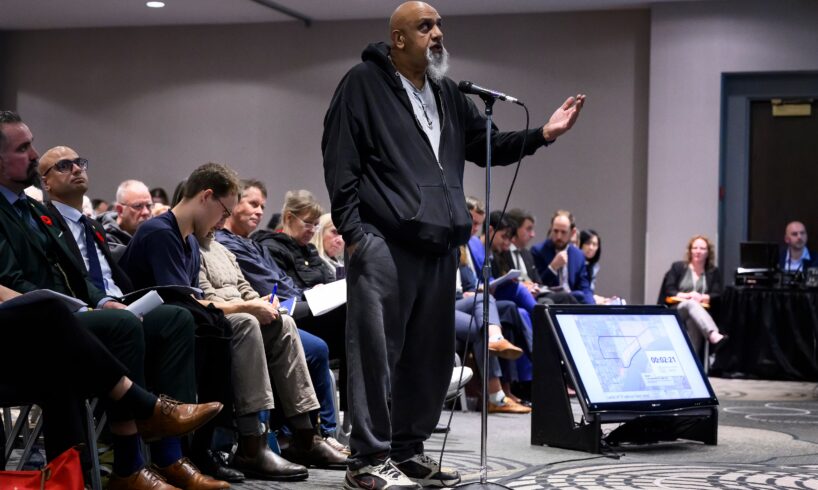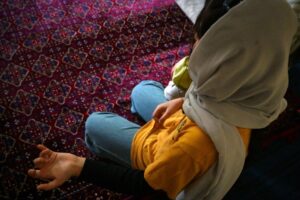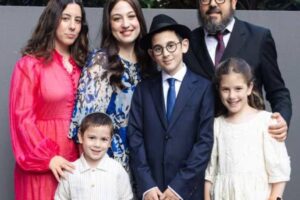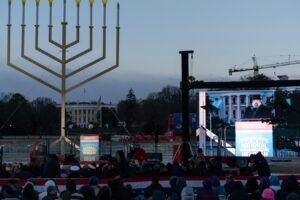
Open this photo in gallery:
Kal Mattu questions City of Richmond Mayor Malcolm Brodie in Richmond, B.C., on Tuesday.Jennifer Gauthier/The Globe and Mail
Frustrated residents in suburban Richmond, B.C., confronted the city’s mayor at a town hall Tuesday night, angry that they were just now learning of a B.C. Supreme Court case that throws their private property rights into question.
After a presentation by city solicitor Anthony Capuccinello on the August Cowichan v Canada ruling that established Aboriginal title over a parcel of land in the southeast of the city, residents living in the area were invited to ask questions.
Kal Mattu was among several residents who demanded to know why residents were not informed sooner. Action commenced on the case in March, 2014, with the trial beginning in September, 2019.
“You guys knew what was going on. Why did you not reach out to us?” Mr. Mattu said heatedly to Mayor Malcolm Brodie to applause of the few hundred people in attendance.
“I’m asking you. You’re the mayor. You’re supposed to know everything that’s going on in Richmond. I pay my taxes to you. Why did you not reach out to us? Why did you not send a letter?”
Cowichan Tribes lawyer says a treaty with B.C. could recognize Aboriginal and private land titles
Eby pushes back on opposition calls to end talks with First Nations over Cowichan decision
Mr. Brodie and Mr. Capuccinello said that the city, the province and the federal government had asked the court to provide formal notice to affected landowners but that the court rejected the submission.
“That was a denial of fair process and is a tremendous injustice,” Mr. Capuccinello said. “That point, the fact that landowners were not given notice, will be incorporated into the City of Richmond’s submissions on appeal.”
While B.C. Supreme Court Justice Jennifer Power did dismiss that submission, she said in her 2017 decision on the matter that it did not prevent any of the defendants – who included the City of Richmond and the federal and provincial governments – from providing informal notice to private landowners if they wished to do so.
Attorney-General Niki Sharma and Mr. Brodie said Tuesday the parties will be seeking a stay of the ruling as they appeal.
Open this photo in gallery:
Mayor Malcolm Brodie and city solicitor Anthony Capuccinello said the court rejected an earlier request to provide formal notice to the affected landowners.Jennifer Gauthier/The Globe and Mail
The city drew widespread attention to the issue earlier this month when it sent letters to property owners in the area warning them that the decision “may compromise the status and validity” of their ownership. The letter invited residents to attend the information session.
Justice Barbara Young’s August ruling said that the Cowichan Tribes “have established Aboriginal title” to roughly 800 acres in southeast Richmond on the Fraser River, an area which the Cowichan call Tl’uqtinus, as well as an Aboriginal right to fish for food.
It also found that B.C.’s Crown grants of private ownership – known as fee simple title – over the area, including those made to Canada and the City of Richmond, were issued without constitutional authority and were therefore “defective and invalid.” Justice Young suspended the effect of this declaration for 18 months.
While the Cowichan did not seek to invalidate private fee simple title interests with the court action, the ruling leaves open the possibility that those interests could later be challenged or renegotiated, causing significant anxiety to property owners who now face an unsettled legal landscape.
Mr. Brodie and others argue that it could upend the modern land title system, with ramifications across the country. It also leaves unanswered questions including how Aboriginal and fee simple titles can coexist and what happens in the event of a conflict.
Mr. Capuccinello, the city lawyer, told residents that Richmond was the only party at trial to argue extinguishment – that Crown grants of fee simple necessarily extinguish Aboriginal title – and repeatedly urged them to demand that the attorney-generals of B.C. and Canada argue the issue in their submissions on appeal. Justice Young had dismissed the argument from Richmond in her August ruling.
Ms. Sharma, who attended Tuesday’s meeting to listen but was invited to speak at its conclusion, told residents that that was a losing argument.
“We argued displacement and suspension of Aboriginal title when there is fee simple title,” she told the crowd. “We argued that the fee simple ownership and our land title system in B.C. was a paramount legal structure, that all you landowners need to have legal certainty.
“The Province has never been successful on a unilateral extinguishment claim for decades,” Ms. Sharma continued. “Our arguments were based on what we thought would get private landowners protection through the case law that was developed in the courts up until today.”
Among other questions, a few affected landowners asked if they would receive tax breaks given that their ownership was in question. (No, Mr, Brodie said.)
One man asked for city-funded legal representation, while another woman asked why the Cowichan were seeking Aboriginal title now.





